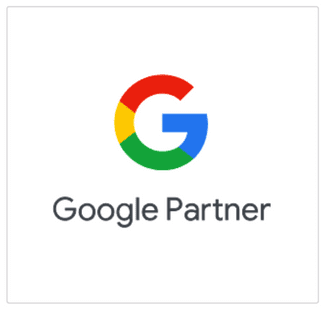In 2023, the events industry has grown considerably and the summer is filled with a multitude of events, from corporate festivals to local shows. In a crowded market, it’s essential to promote your event in an effective way to attract the right audience and ensure its success. In this article, we’ll explore appropriate promotion strategies for events in 2023, as well as ways to monitor ticket sales and the success of your campaign.
How do we promote an event?
In order to ensure that we have all the information we need to promote our event, it is crucial to know in detail the target audience, the location of the event and to have access to all the necessary resources for the campaign. Thus, we require access to the relevant accounts in order to manage and promote the event effectively. We also request the materials we will use in the campaign, including the official banners. Of particular importance is that we cannot use generic or internet images of our artists. For this, we need official pictures, approved by the artist, manager and label. This is the first essential step, as we will use those banners in all possible formats, both in our campaigns and in our videos. If we also receive videos from artists, they will be very well received, as videos have a better reach than banners, providing a wider exposure and a more engaging visual communication with our audience.
The Meta platform offers numerous targeting opportunities, allowing us to target audiences based on music genre, specific artists and interests related to concerts and events. It is essential to know the size of the event. If it is a small event, limited to a certain area, we will target our promotion efforts to that city and surrounding areas. In the case of a large Untold event, we will focus on the whole of Romania. Although we want to reach as many people as possible, our budget will be concentrated on the area where the event takes place, as this will definitely be the place where most people will participate.
We have the possibility to create custom audiences, taking into account the interests of those who are interested in events, frequently attend events, prefer certain types or genres of music and are involved in various event-related activities. We also handle remarketing and the creation of lookalike audiences to find people similar to those who have interacted with our website or page in the past. In this way, we can reach as many people as possible with our campaign, and then narrow down the audience to focus more on people who are closer to the event and show an increased interest in attending.
So if you want to promote an event you should consider the following steps:
• Defining the target audience:
To promote an event successfully, you need to start by identifying your target audience. Think about who would be interested in your event and what their demographics and interests are. This step will help you tailor your message and promotional channels to reach your audience.
• Using digital marketing:
In the digital age we live in, you can’t ignore the power of the internet and social networks in promoting events. Create a strong online presence through a well-designed website and social media pages. Use engaging content, such as videos, images and stories, to engage your audience and create interest in your event.
• Working with influencers and partners:
An effective strategy for promoting events in 2023 is to collaborate with relevant industry influencers and artists. Identify influencers or organizations that have an audience that matches your event and establish partnerships. You can ask artists to promote your event on their social media channels or run competitions to give away free tickets to their audience.
• Offline promotion and local partnerships:
Even if digital marketing dominates, don’t underestimate the power of offline promotion. Use posters, flyers and other promotional materials in strategic locations such as shopping centres, cinemas and public spaces. Work with local advertising agencies, radio and TV stations to get media coverage for your event. Also partner with local businesses, such as restaurants or shops, to promote each other’s event and attract a wider audience.
• Using email marketing:
Another effective tool for promoting events is email marketing. Build up a database of potential attendees by collecting email addresses of interested people. Periodically send them relevant event information, special offers and important updates. Make sure your messages are personalised and contain valuable content to keep participants interested and engaged.
• Organising pre-events:
To generate excitement and interest for the main event, you can organise pre-event events. These can be product launches, conferences, networking sessions or special presentations, which will attract audience attention and create positive anticipation. Make sure you promote these pre-events properly and connect them strategically with the main event.
• Ticket sales and success monitoring:
To monitor ticket sales and the success of your promotional campaign, use an online event and ticket management system. These platforms will allow you to track the number of tickets sold, revenue generated and other relevant metrics. Analyse this data and adjust your promotion strategies based on the results. Also, collect feedback from attendees to identify the strengths and weaknesses of your event and improve them in the future.
How we spend and distribute the budget?
In terms of event promotion strategy, it is important to allocate the budget to cold audiences, i.e. people who have not previously been exposed to information about the event and who may be potential new participants. We will run reach and engagement campaigns, trying to reach as many people as possible. We focus on increasing brand awareness, generating traffic and engaging audiences in discussions about the event. This includes all possible types of campaigns to achieve maximum reach, as this is our main objective. We want to increase the number of people who are aware of the event and stimulate their interest in participating. In the last month or the second half of the promotion period, we will intensify our remarketing efforts, as we already have a significant number of people who are aware of the event and it is time to remind them to buy tickets. Our experience shows that warm audiences, i.e. those who have already been exposed to information about the event, respond best to the remarketing strategy. However, to reach these warm audiences, we need to build a solid base of potential attendees that we can then retarget.
Promoting events is not only online, but also involves using other communication channels. Although online promotion has a significant impact, we need to find ways to promote in different channels. We can organise competitions, collaborate with influencers, use email marketing and SMS campaigns. It is important for organisers to explore options in other communication channels. They can ask artists to post on their social media accounts and organise competitions to further engage the audience. Offline promotional materials such as flyers and street posters can also be created. Highway advertising banners to popular destinations such as the mountains or the sea, as well as radio or even TV campaigns, can be considered, depending on the budget and event objectives. It is important to adjust the promotion budget according to the number of tickets we want to sell, taking into account the size of the event. If we have an event at the Sala Palatului with a capacity of about 3400-3500 seats, the promotion strategy should not aim at selling 10,000 tickets, but should be adapted to our specific objectives. It is true that, during the pandemic, online promotion worked well, but now we need to diversify our communication channels to reach a wider audience and achieve optimal results.
With more and more events taking place these days, the competition is getting fiercer. There are situations where, in the same week, there are even three events taking place simultaneously. Faced with this scenario, people have to choose their events carefully, taking into account both their budget and the time they have available. As organisers, it is essential to convince people that our event is the one they should choose. We need to be present everywhere, promoting both offline, through posters and promotional materials, and online. Also, event participants should be encouraged to become ambassadors of the event and promote it among their acquaintances. It is crucial to give people the confidence that our event is one they deserve to attend and that our promises will be accurately delivered.
Despite our best efforts, we encountered difficulties in selling tickets for a new event with no previous history.
This is one of the challenges we faced in promotion
The lack of previous experience put us in the situation of exposing the event according to the information we had available, such as the artist and similar events held in other countries. However, we were pleasantly surprised by the extraordinary energy and atmosphere that characterised the event when we experienced it first hand. We regret not being able to convey this vibe in the initial promotion, but this underlines the importance of close collaboration with our partners. It is essential that they provide us with all the details we need to successfully promote the event and convey its true value to the public.
Whatever challenges you face, we are here to offer you tailor-made solutions and services. At re7consulting Romania, we focus on the success of our clients. We want to help you achieve sustainable results and exceed your goals. Our dedicated and passionate team will work with you to develop solutions tailored to your specific business needs and goals.







